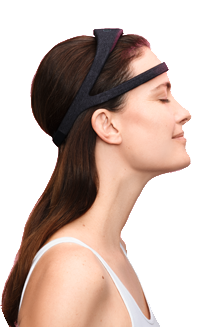The sleep routines of some of the greatest artists in history paint a fascinating picture.
Renaissance artist and inventor Leonardo Da Vinci was rumoured to take 20-minute power naps every four hours. Salvador Dalí was a master of surrealism and reportedly the micro-nap. Then there’s the French writer Honoré de Balzac, who supposedly compensated for his sleeplessness with up to 50 coffees a day!
Such quirky examples reflect a romanticised myth that we must sacrifice our sleep in the name of art. The reality is far from the truth. The book ‘Daily Rituals: How Artists Work’ reveals that many of the most famous creatives ever known slept at least seven hours a night and maintained consistent bedtimes.1
Science tells us that sleep is critical to our creative abilities. It helps us problem solve and make connections between things by unlocking different ways of thinking. Ideas and links between thoughts often emerge during the stage of sleep known as rapid eye movement (REM) sleep which is rich in dreams.2
In fact, Paul McCartney, the legendary member of The Beatles, is known to have manifested the melody to the hit song ‘Yesterday’ in his sleep.
But getting enough sleep can be an obstacle in tapping into our dream states.
Bedtime routines can often be a source of blame. Pre-snooze activities may either help or hinder your ability to fall and stay asleep. For example, drinking alcohol is often mistakenly seen as an activity that can help you go to sleep, yet it delays the onset of REM sleep and can cause sleep disturbances during the night.3
Here are some simple suggestions to help you unlock your artistic brilliance with a better sleep routine:4
Most built-in humidifiers in CPAP devices contain a chamber that is filled with water. Underneath this chamber is a hot plate that heats the water and turns a portion of it into water vapour. This vapour is then mixed with the pressurised air that CPAP users breathe in.
Your humidification settings should allow you to control both the amount of water boiled off and the temperature of the air you breathe in.
Reading is a good source of creative inspiration. The books you read before bed can spark new ideas that can be processed by the brain while you sleep.
A warm and relaxing shower or bath can help calm your body and mind to help ease you into sleep. Unsurprisingly, Add a delicious and caffeine-free Sleepy Time tea for the ultimate wind-down activity!
But putting away our devices will help us get to sleep faster and stay asleep. Research tells us that using bright screens before bed can impact the hormone melatonin that makes you sleepy.5
Not only is listening to music a soothing activity to promote good sleep, but it can also facilitate “divergent” thinking. A 2017 study showed that playing happy and upbeat classical music inspired higher creativity among participants when performing a task.5
This is an important one. Having the same bedtime every night helps your body maintain its internal clock, or circadian rhythm, and get better rest.
Interested in learning more about your sleep? Take our free online sleep assessment, it only takes a few minutes!
Sleep isn’t one-size-fits-all, neither is the way you improve it. We provide you the very best tools to help you get there.

Resmed

Chat anytime with our AI-powered, digital assistant Dawn for instant CPAP support and sleep health insights. Think of Dawn as your personal guide in the digital library of sleep and ResMed information. Access 24/7 sleep support now.
Stay up to date with the latest products, news, offers and tips for Sleep Apnea, Snoring, Insomnia and overall good Sleep Health.
Post a comment